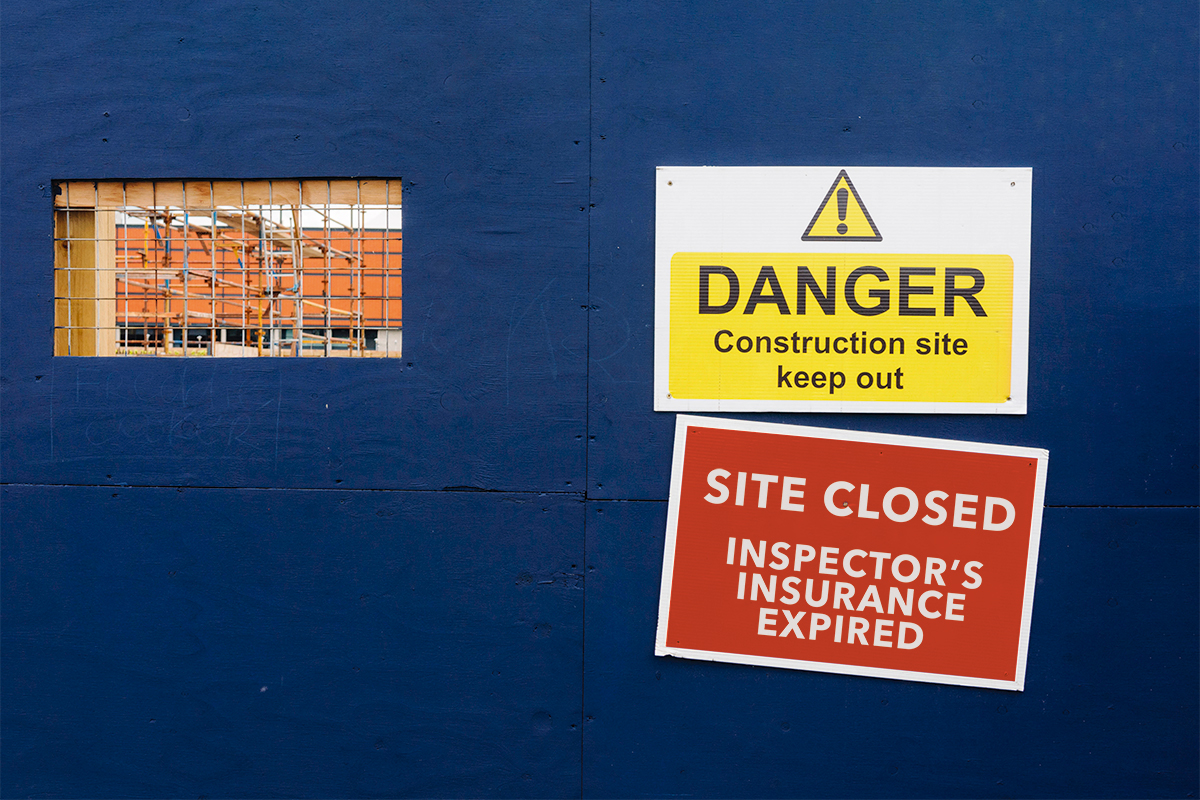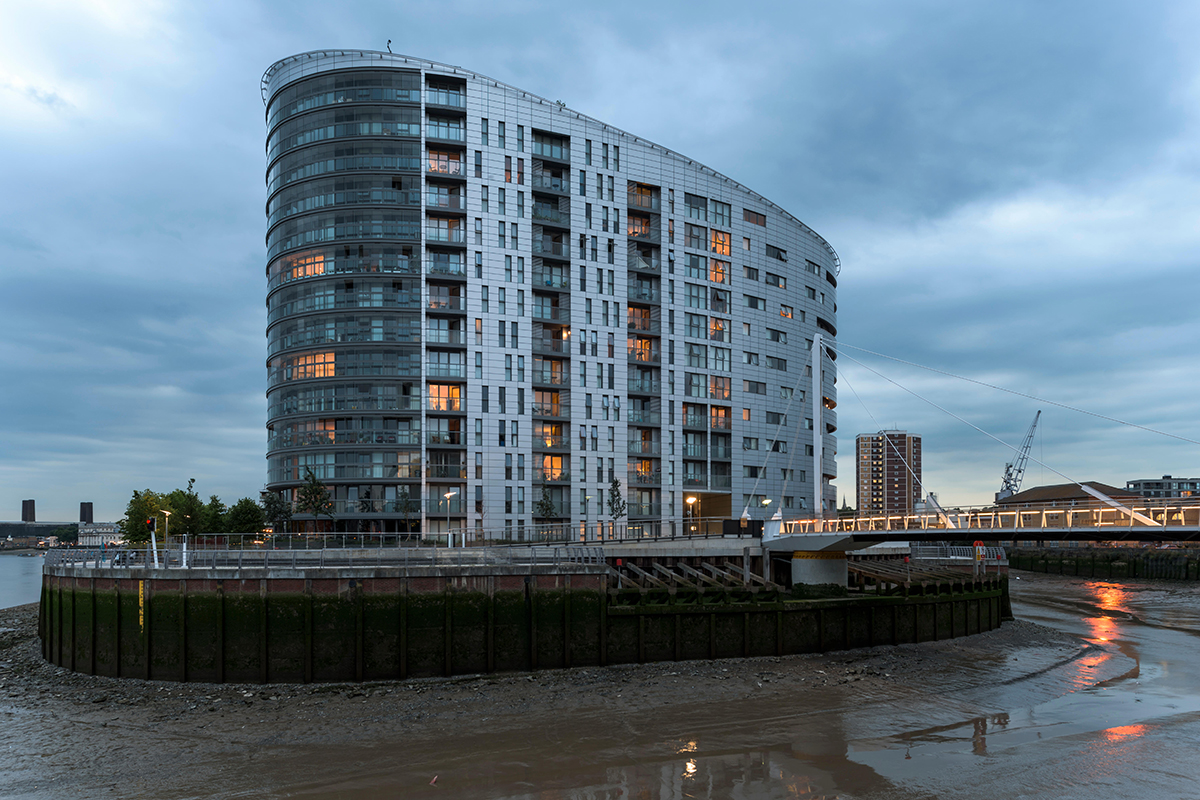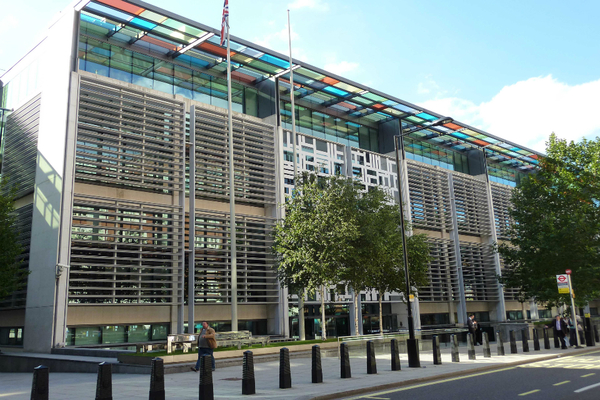An inspector falls: what the building control insurance crisis means for the housing sector
A large building inspection firm has filed for liquidation as an insurance crisis engulfs the sector. Luke Barratt explains what it means for those involved in building new homes. Picture by Alamy
Building control is an often overlooked part of the chain in developing new homes, but it is a crucial one. This is the process whereby inspectors sign off developments as compliant with building regulations.
In the aftermath of Grenfell, with revelations about hundreds of unsafe buildings around the country, their work has fallen into the spotlight.
Now this scrutiny has turned into a crisis, with insurers refusing to back private inspectors, driving at least one, and perhaps many more, to the point of liquidation. This could have serious consequences for housebuilding in the UK.
Why do private companies carry out building control work at all?
Before 1985, building control work was done exclusively by local authorities. But then Margaret Thatcher part-privatised the service, allowing private companies known as ‘approved inspectors’ to compete with councils. At first, only one, the National House Building Council, took up the role.
But in 1997, shortly before leaving office, John Major’s government widened the amount of projects that could be certified by a private company – attracting more players into the field. There are now 95 approved inspectors operating in the UK.
Dame Judith Hackitt criticised this system in her post-Grenfell review of building regulations, saying it allowed builders to choose their own regulator, leading to a “race to the bottom”.
What is the insurance crisis?
In a nutshell, the issues around building safety and the potential liability have spooked the firms that provide professional indemnity insurance to the inspectors.
There are only two insurance brokers of of approved inspectors: Howden and Griffiths & Armour.
Howden’s scheme insurer withdrew from underwriting its PI insurance at the end of last year, with the company attempting to replace the insurer since then.
Howden told Inside Housing that the strict insurance criteria in the sector set by the government in 1996 had not been modified to account for today’s challenging market conditions and that the current situation in the sector had put "incredible pressure on the only compliant scheme available".
It added: "Howden is working with our clients to solve this issue, and has been in conversation with the Ministry of Housing, Communities & Local Government for a number of months, recently submitting a full and detailed proposal for changes to the insurance criteria. If accepted, this would provide a practical solution to the problem.”
Approved inspectors cannot operate without insurance and as Inside Housing revealed last week, one, Aedis Regulatory Services (ARS), has already filed for voluntary liquidation weeks after it was unable to secure insurance cover. At the time of writing, it was not confirmed whether the company had entered liquidation. The liquidation only related to ARS. Aedis Warranties is unaffected and remains a going concern.
Joe Ayre, managing director at ARS, tells Inside Housing that Griffiths & Armour refused to take the company on because it “didn’t have an appetite for taking on such a large client as us”.
Mr Ayre says that Howden was willing to continue to insure it but under different terms, which it sent to the Ministry of Housing, Communities and Local Government (MHCLG) to sign off. According to Mr Ayre, however, this request was refused. Inside Housing has contacted MHCLG for comment.
ARS was carrying out inspections on 12,000 construction projects across the UK, which the firm claims represents 5% of the construction industry. This means a potential liquidation could have a huge impact: delaying jobs all over the UK.
An update from Griffiths & Armour to its clients – seen by Inside Housing – reveals that the company is more concerned about risks because of “cladding and fire safety risk”.
It adds: “The tragic fire at Grenfell Tower has understandably raised the profile of such issues in more detailed underwriting assessments into those areas of exposure.”
Griffiths & Armour has not totally pulled up the ladder, however. The update says the firm will consider each application “on its merits”. While at least one more has been refused, Inside Housing is aware of one approved inspector that was insured with Howden but has switched to Griffiths & Armour.
What could the impact be?
Construction projects could be at risk if the crisis drives inspectors out of the market (picture: Getty)
The CICAIR letter, which was sent to all approved inspectors, reminded them that they need insurance to function and warned that if they are unable to carry out building control, they should publish cancellation notices and inform the local authority.
Regulations prevent councils from stepping in to carry out building control unless these notices are published, but Barry Turner, director of technical policy at Local Authority Building Control, tells Inside Housing that in most cases approved inspectors are walking away without doing this. On these sites, work should legally stop but Mr Turner adds: “The work on site, as far as we are aware, hasn’t stopped. It’s effectively unregulated. To the best of our knowledge, nobody’s inspecting it.”
Mr Ayre admits: “We’re trying to work our way through [the cancellation notices] but I’ve gone from 120 staff down to eight at the minute and most of them will be gone by the end of the week.”
If councils are unable to step in, the risk is that the work continues without building control (meaning safety issues could arise) or construction on many sites could grind to a halt.
A spokesperson for the Home Builders Federation says the insurance issue “potentially has implications for housing supply”, adding that it “is particularly impacting small and medium-sized builders”.
Apart from ARS, there are another 14 approved inspectors that have insurance policies with Howden. Of these, four have already seen their policies expire and four more have policies which are set to expire in less than a month.
Jonathan Evans, chief executive of cladding firm Ash & Lacy, told a select committee of MPs last week: “We could be facing a crisis where nobody wants to do this any more. It’s a real risk.”
What can be done?
The offices of the Ministry for Housing, Communities and Local Government (picture: Getty)
If approved inspectors manage to get cancellation notices through, then councils will be legally allowed to take on the work, but this will place a strain on their already stretched building control departments.
It is possible a new company could register to provide insurance, but this would require government approval under the rules for approved inspectors. Equally, reducing the requirements for insurance companies to be involved is within the government’s power, however that would be an about-turn considering the focus on public safety after Grenfell. As Mr Turner says: “Where’s the public protection?”
While the government decides, its housebuilding figures, as well as the safety of unregulated projects, hang in the balance.
UPDATE: at 12.30pm, 19/07/19 This article has been updated. The original article said that Howden and Griffiths and Armour were insurance providers.
Both companies are in fact insurance brokers for approved inspectors.
The initial story also said that Howden had decided not to renew their insurance policies. Howden has said that as an insurer, it has no policies to renew. Howden's scheme insurer withdrew from underwriting PI insurance at the end of last year, and since then it has attempted to replace its insurer.
The article also now includes a full statement from Howden.
















